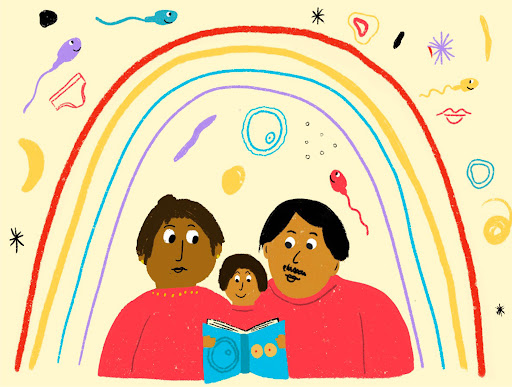Sex Education in Indian Classrooms
Sex education in India is a controversial and taboo subject, with varying opinions and restrictions across the country. Despite the importance of comprehensive sex education (CSE) for children including pre-teens and teenagers, the current situation in Indian classrooms is far from ideal. Sex-related topics are still spoken about in hushed tones, the taboos surrounding it effectively hindering educational initiatives. Parental discomfort in discussing sex limits open communication. Strong objections from various societal sections, including parents, teachers, and politicians, pose challenges to sex education. |

Why is sex education important in schools?
- Promoting Sexual Wellbeing: Equips young people with knowledge to make informed decisions, reducing the risk of infections and child mortality.
- Supporting Healthy Relationships: Teaches relationship skills, boundary setting, and open communication.
- Preventing Unplanned Pregnancies: CSE lowers the risk by empowering informed decisions on reproductive health. The more students can access accurate information from a trusted provider, the more prepared they can be when making decisions about their bodies and relationships.
- Improving Mental Health: Improves positive body image and self-esteem, reducing mental health issues related to sexuality.
- Encouraging Open Communication: Promotes open communication, laying the groundwork for ongoing discussions between parents and children, while also addressing cultural and religious barriers by providing accurate information to overcome obstacles to sexual health.
Revising the Adolescent FLE Program
The current Adolescent FLE (Family Life Education) program in India is a crucial aspect of sexual education for young people. However, it is essential to revise the program to ensure that it provides comprehensive and accurate information on sexuality, relationships, and reproductive health.
Here are some suggestions for revising the Adolescent FLE program:
- Expand the Curriculum: The existing Adolescent FLE program should be expanded to cover a broader range of topics related to sexuality, relationships, and reproductive health. This includes topics such as puberty, reproductive health, sexual orientation and gender identity, contraceptives, safe sex practices, and prevention of sexual violence.
- Cultural Responsiveness and Inclusivity: The revised Adolescent FLE program should be culturally responsive and inclusive, addressing the diverse backgrounds and experiences of Indian adolescents.
- Comprehensive and Evidence-Based Content: The program should be based on the latest research and best practices in comprehensive sex education.
- Training for Teachers: Teachers should be provided with the necessary training and resources to deliver the revised Adolescent FLE program in a sensitive and age-appropriate manner
- Parental Involvement: Encourage parents, teachers, and community leaders to participate in the revised Adolescent FLE program and promote a supportive environment for discussing sexuality with adolescents.
- Community Engagement: Engage with religious and political stakeholders to address their concerns and work towards a consensus on the importance of comprehensive sex education for Indian adolescents
- Ongoing Evaluation and Improvement: The revised Adolescent FLE program should be regularly evaluated and improved based on feedback from students, teachers, and parents. This includes assessing the effectiveness of the program in promoting sexual health, preventing unplanned pregnancies, and reducing the risk of sexually transmitted infections.

Conclusion
Sex education is often neglected in the Indian curriculum, resulting in inadequate awareness and knowledge among young people and negative consequences. To address this, enhancing the curriculum, involving parents and society, training teachers, and addressing cultural and religious concerns are crucial for equipping young individuals with the necessary knowledge and skills for informed decisions about their sexual health.
Author

